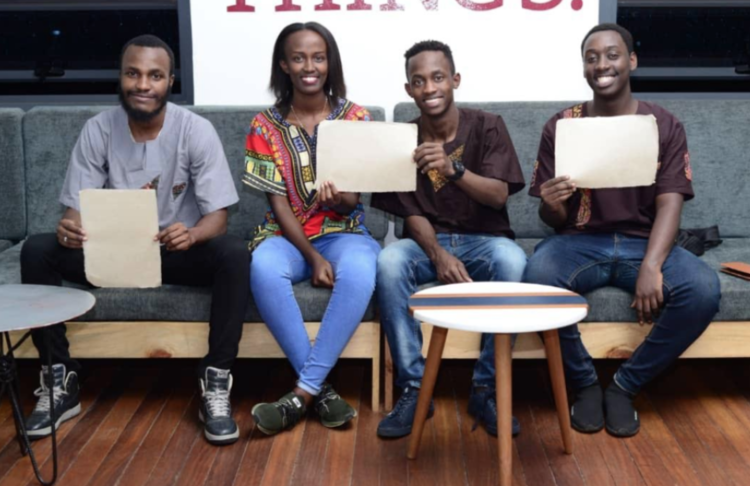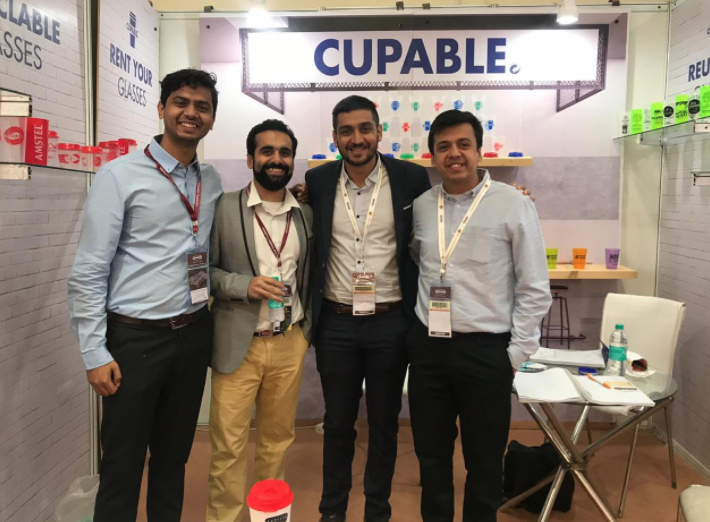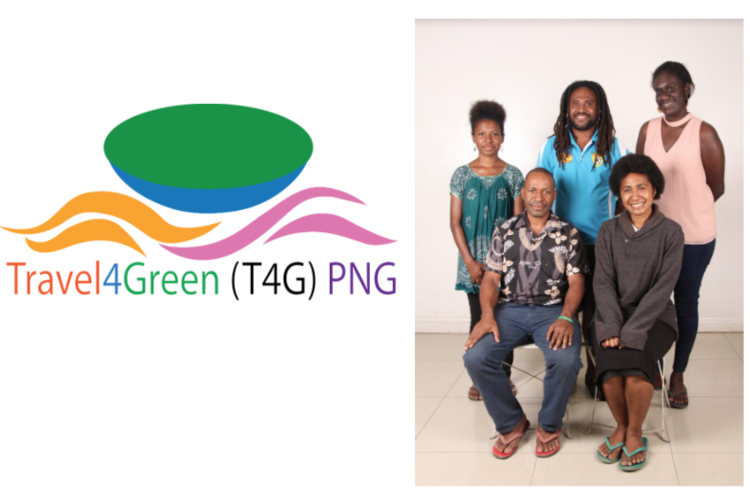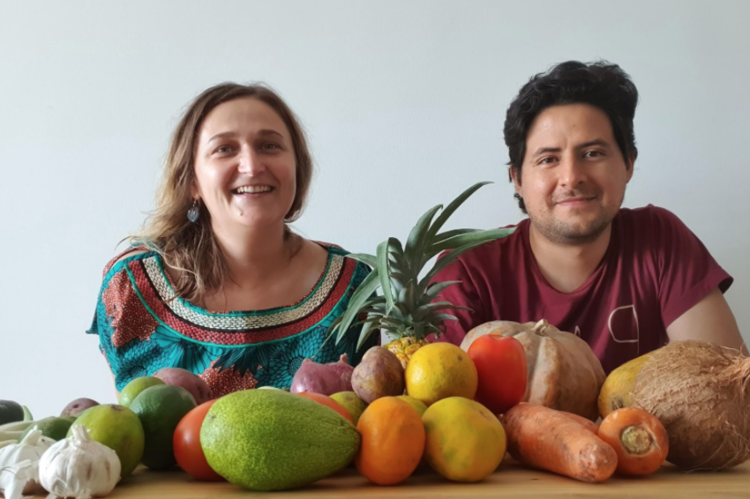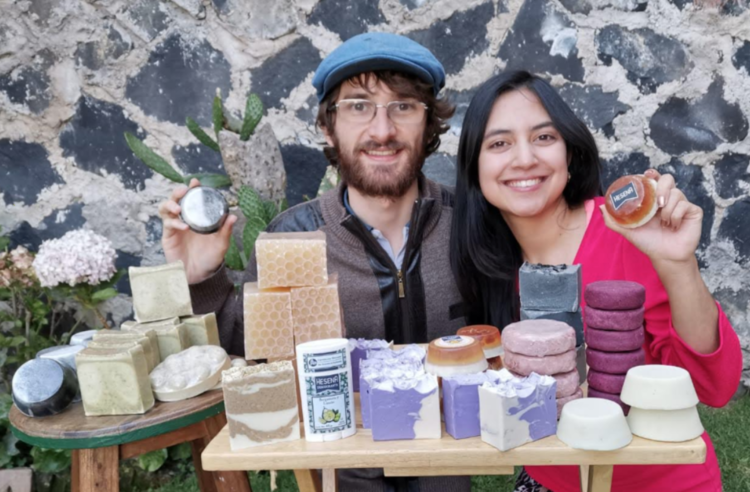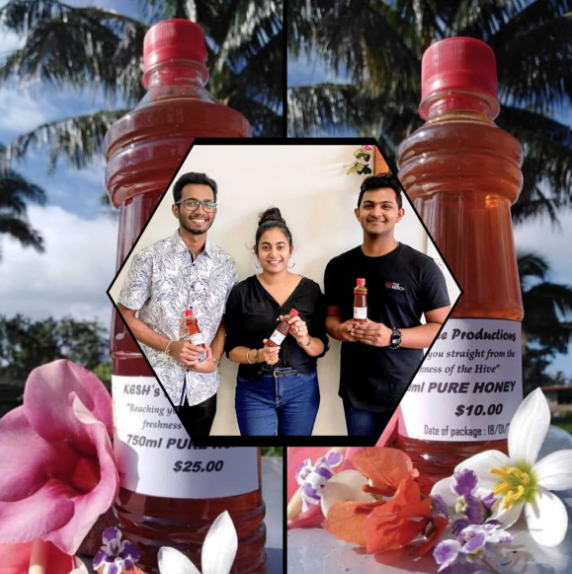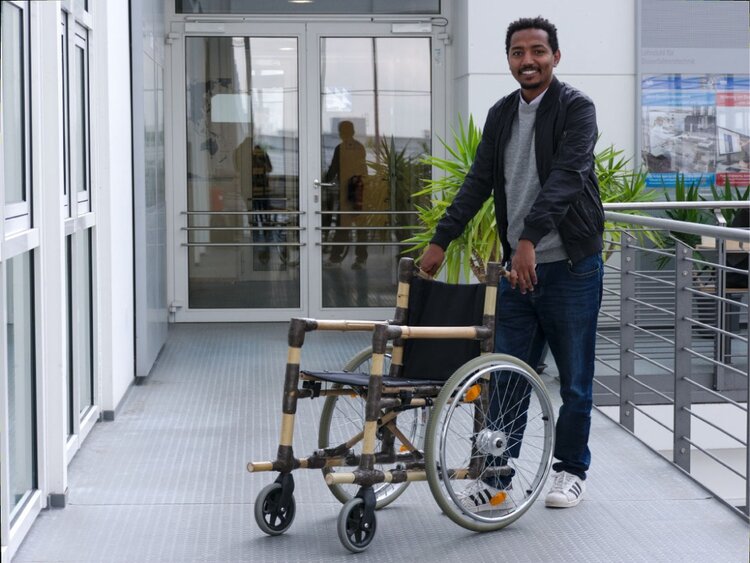Meet the 2020 Greenpreneurs Teams
Fifteen teams from 12 countries around the world went through a rigorous application process and were selected from over 150 prospective teams to participate in Greenpreneurs. They will be participating in twelve weeks of entrepreneurship programming to take their idea from concept to business plan for a solution that positively impacts the future of sustainable energy; sustainable landscapes; or green city development.
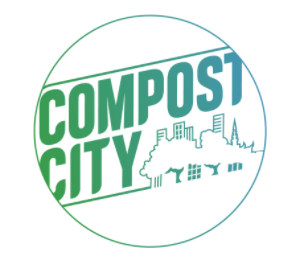
COMPOST CITY (Cambodia)
Make composting in the city easy and engaging
Theme: Sustainable Landscapes, Green City Development
Team Members: TCHAW Monorom, KHAT Davan, NIL Sangvat Reksa, MORVANT Tony
COMPOST CITY is developing composting equipments and educational programs to help households and schools turn their kitchen waste into compost with ease and appreciation for how nature works.
We are focused on 2 issues: waste management and growing soil disconnection among city dwellers.
- Waste management: household waste in Phnom Penh could be individually composted and reduced by 70%, which could represent collection and transportation cost savings of 30.8 million USD annually for the city. It would also free up arable land and reduce the proportion of wet waste, which would make the recycling and waste-to-energy sectors in Phnom Penh more attractive. Last but not least, citizens would live in a cleaner and more beautiful city.
- Soil disconnection: are the current soil erosion and depletion of natural resources just reflections of our relationship with the soil? Let’s talk about it 🙂
Check COMPOST CITY Facebook page here to get to know the project better or to contact us.
Zonku Technology (UGANDA)
A web, mobile and SMS platform that connects users with waste Pickers.
Theme: Green City Development
Team Members: Daniel Obua Ocari, Gabriel Angura
Plastic waste is a significant problem in East Africa, Currently, about 2-5% of plastic waste in Uganda is recycled while the rest finds its way into water-bodies, causing environmental and health challenges. Zonku Technology collects and recycles single use plastic, ensuring that it gets processed sustainably using circular economy principles. The Zonku mobile app allows homes, schools and businesses to request recycling pickups at the touch of a button. Waste pickers, referred to as ‘Zonku Riders”, then arrange a pick up and transport the collected plastic waste to the Zonku recycling factory where they are turned into plastic pellets and resold to local or international companies to produce repurposed and recycled products. Zonku Riders are trained in environmental sustainability and waste processing, giving them access to decent jobs that benefits both their pockets and the planet. The Zonku mobile app also teaches users how to properly separate waste for efficient processing. Rural communities are incentivized to recycle through cash incentives, call credits and other in-kind benefits. Our vision is to becomes Africa’s leading innovative company focused on plastic recycling. The mission is to innovatively address plastic pollution challenges in Africa using the circular economy model.
UMUTI Paper (Rwanda)
Theme: Sustainable Landscapes
Team Members: Nadine Ndahiro, Arsene Gatera, Irankunda Shema Thierry Henry, Kevin Shema
UMUTI is a Green enterprise that uses banana and plantain trunks that are left over after harvest to create eco-friendly paper packaging bags.
Our business idea came after realizing the effects of human activities on climate change. Over 400 million tonnes of paper we use for writing are produced annually, and 93 percent of them come from Timber, and continuing at this most likely rate, it will take less than a century to deplete the entire tropical forests, which accounts for a third of global oxygen production and serves as habitat to most of our wildlife species.
On the other side, Banana trunks are currently viewed as problematic waste with no other economically viable uses; UMUTI uses a completely sustainable renewable fiber source (i.e., banana tree trunk) that doesn’t contribute to the destruction of natural or purpose-plant forests. The process is also much more environmentally friendly and produces significantly lower costs than comparable products.
RECUBE (India)
Theme: Sustainable Energy
Team Members: Anupriya Nayyar, Lokesh Sambhwani, Nishith Jardosh, Purav Desai & Rahul Batra
Recube is a social enterprise that seeks to revolutionize the way we consume every day. We create smart packaging systems to close the loop and enable circular economy. We aim to eradicate single use disposables in the food, FMCG & E-commerce through our reusable systems.
We have created a circular infrastructure –
- Reduce the resources we use to produce our products and switch renewable sources like Crop Waste
- Reuse products until it can not be refurbished or till the end of its life cycle
- Recycle/Upcycle/Compost the product to achieve complete circularity and close the loop
Our brands, Boxable, Cupable, Eatable and Refillable work on the above objectives across all industries. For each brand, we have manufactured products from pelletized crop waste, used them for atleast 100 washes, and then conducted LCA through our IOT enabled system.
Recube has already diverted 5MN+ disposables from the landfill in our first year of operations by helping 120 brands go zero waste
You can check our work out at: www.recube.co.in / www.cupable.co / www.refillable.store
Travel4Green (Papua New Guinea)
Theme: Sustainable Landscapes, Green City Development
Travel4Green (T4G) PNG is a social enterprise intends to engage in activities on tree planting and monitoring the standing forests to make the environment of Papua New Guinea cities and communities healthier and more livable.
Our work involves nursery tree seedlings, transplanting them and to keep a track of them using a mobile application. Tracking using the mobile application is mostly to identify irregularities and illegal activities and report them to relevant authorities. The tree planting activities intends to achieve a target of 10-million trees by 2030. Also conducting talking sessions on why planting specific species of trees and its significance in addressing the global climate change and using the disruptive technology to harness the conservation of nature and monitoring of irregularities.
The initiative come about when seeing the need to find solutions to increasing land temperatures, poor air quality, lack of parks and green spaces and high unemployment rates in urban centers. As one of the small island state in the Pacific, Papua New Guinea is facing the drastic impacts of climate change.
Facebook Page: https://www.facebook.com/travel4green
Blog: http://t4gpng.blogspot.com/
Website: www.t4gpng.org/
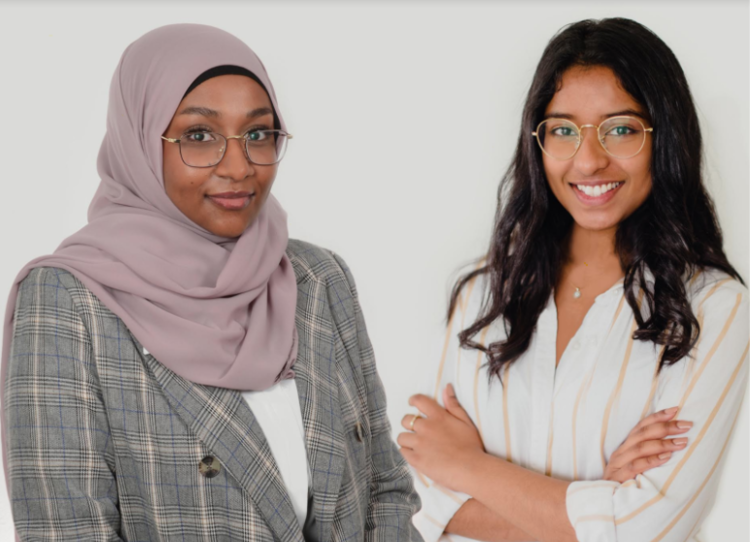
Bestby (United Arab Emirates)
Theme: Green City Development
Team Members: Amna Elnour and Sabira Huda
A huge contributor to food waste is the disposal of foods well before their best by date which otherwise can be salvaged. Bestby recognizes this issue and aims to create an online platform that creates a direct channel between food suppliers and consumers by selling perfectly consumable items approaching their best by date at a discount.
As well as making these salvageable items available to consumers, we want to create a more informed community by enlightening UAE consumers about the severity of food waste. We aim to create a buzz in the conservative circles using digital influencers such as chefs and food bloggers contributing in blog posts, newsletters, social media exposure, and various events that promote the goal of our project.
By prominently engaging with the community, we aspire to help create a well-rounded ecosystem and an eco-conscious society while actively eliminating food waste.
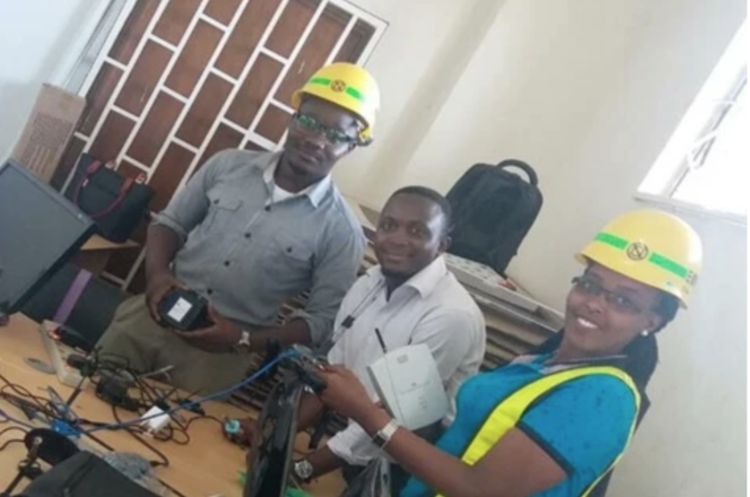
Peec Energy (Uganda)
Theme: Sustainable Energy
Team Members: Philip Kyeswa, Damalie Namatovu, Ronnie Ssejjuko, Gordon Wavamuno
Peec Energy has created a revolutionary new approach to bring affordable solar electricity to everyone. Our novel solution unlocks an unaddressed market for solar, removing the barriers to entry for multi-dwelling residents, and allowing solar providers to service a new and growing market without reliance on other incentives. The project is based on a proven model of offering remote monitoring and metering for solar mini-grids and pay as you go solar home systems (SHS). In this way, we offer PAYG meters to local mini-grid developers to allow them sell energy in off-grid locations and to remotely monitor their utility assets and collect bill payments over a central software.
Roughly 30 million Ugandans still lack access to affordable electricity. About 84% living in rural areas and are low income earners. Despite a number of off-grid solar connections and investment over the past years in Uganda especially, rural electrification has been so slow because local energy utilities like mini-grid developers and PAYG Solar home system installers are limited by challenges of remote monitoring and securing of their energy assets discouraging many to reach under-served rural and last-mile markets leaving millions of households still unconnected.
Peec Energy’s mission is to increase access to electricity in hard-to-reach and underserved markets.
Diversifinca (Colombia)
Disrupting the food chain through sustainable sourcing
Theme: Sustainable landscapes
Team members: Andreea Nowak, Oscar Bautista
Diversifinca is a digital hub bringing together agricultural producers and consumers, built around the impetus to improve rural livelihoods, while caring for nature. Diversifinca works with smallholder farmers in Colombia’s Northern Magdalena region to help them diversify their agricultural systems by combining trees and crops on their farm, to strengthen their technical capacity in sustainable farm management, and to provide them access to a digital-based market. Simultaneously, Diversifinca enables customers to source their food directly from near-by farmers and to reduce their environmental footprint, by planting trees on farms of their choice. We believe that farm diversification is key to livelihoods security and that only by investing in people and nature can we truly create sustainable landscapes.
Hesena (Mexico)
Theme: Green City Development
Team Members: Sabrina Briones, Harald Nielsen
Mexico City is the second city in the world that generates the highest number of waste, accumulating almost 13,000 tons of garbage every day derived from the activity of more than 20 million people who work/live in this capital. We start this project because several people throw away solid waste and heavy plastics -like shampoo bottles- to unusual places like some rivers and street canals in Mexico, causing the drain to plug and flood the streets in rainy months.
Hesena develops and distributes personal hygiene & skin-care products. Our products are natural, cruelty-free and with 95% less plastic than commercial products (some of them are plastic-free). As we were nailing down the idea, we realized that this could have a greater and intrinsic impact that we had not seen before: benefit local communities and farmers that grow our raw materials (such as mexican vanilla, honey, avocado, etc.). So, we are now working with local producers in terms of fair-trade to continue developing new and attractive soaps, shampoos, deodorants, and more.
Contact: hola@hesena.com
Bees&Us (Fiji)
Theme: Sustainable Landscapes
Team Members: Avikesh Jai Kumar, Sherita Sharma, Kartik Nand
It takes more than soil, water, and sunshine to make the world green, in accepting so, agriculture has greatly recognised the value of pollination by bees however the decline in bee population poses a threat to human life.
With noncommunicable diseases accounting for 80% of deaths in Fiji, Fijians, want healthier alternatives. Honey is a natural, sweetener option. Honey and beeswax can also be used in homeopathy as an alternative medicine and skincare solution, due to its natural healing properties.
Our green growth idea aims to offer healthy choices that connect people to nature through integrating bee friendly farming practices in our gardens and products from the hive and creating a harmonious ecosystem.
By pollinating the idea of green and sustainable entrepreneurship within passionate Fijian youth and being a platform for mentorship and support for budding entrepreneurs, we also envision to sweeten and support the dreams of Fijian youth to be financially independent, empowered, and construct a more economically active youth population as positive agents of change in their community.”
Bamboo Labs – Green Mobility (Ethiopia)
Sustainable Bamboo Wheelchairs and Bicycles
Theme: Sustainable Landscape, Green Cities
Team Members: Abel Hailegiorgis, Raffi Dermen, Haimanot Eshetu and Yosef Assefa
With a population of nearly five million, at an increasing rate of 3.8% per year, Addis Ababa is one of the fastest growing metropoles in Africa. Confronted by accelerating rural migration and rapid urbanisation, Addis Ababa cannot respond to the rising mobility demands of a growing population, which has led to an increase in poverty and social inequality.
While Ethiopia struggles with economic development, it currently possesses the largest area of bamboo in East Africa, a resource that it is highly renewable, sustainable, and easy to grow.
Bamboo Labs is a social enterprise that promotes affordable, accessible, and sustainable transport systems by using renewable resources to create positive environmental impact. Having started as an enterprise that created wheelchairs framed entirely out of bamboo, Bamboo Labs has recently expanded mobility options by offering bamboo bicycles.
Bamboo Labs achieves 3 pillars of sustainable impact:
Improves the livelihoods of individuals and communities by improving mobility.
Creates local jobs and strengthens the Ethiopian economy by using locally grown bamboo.Reduces our carbon footprint and the number of toxins released into the atmosphere.
Bamboo Labs is creating a tangible impact on the United Nations Sustainable Development Goals and addresses the challenges rising from rapid urbanization to ensure a prosperous, equitable, and sustainable city for the future.
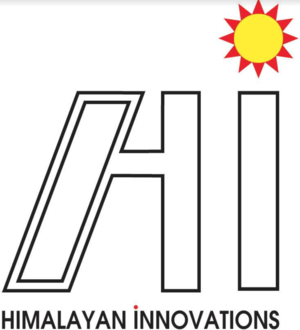
SolarForward (Nepal)
Team Members: Sadikshya Aryal, Sita Subedi, Kuldeep Aryal
Theme: Sustainable Energy
The SolarFroward project is an initiative that aims to provide potential alternative for achieving energy equity to marginalized and at-need off grid communities. We aim to provide access to critical energy infrastructure needs to the Bottom of the Pyramid population of Nepal through our PAYG (pay-as-you- go) solution.
Power Box (Mongolia)
Team Members: Tserendorj Natsagdorj, Khos-Erdene Baatarkhuu, Tselmeg Enkhbayar, Uuganbayar Ganzorig, Chuluuntsetseg Chuluunbaatar
Theme: Sustainable Energy
With the aim to alleviate global energy and economic poverty, Power Box will empower individual entrepreneurs in becoming the agents in electricity creation and allocation, thanks to a renewables based mobile power plant.
We believe that access to sufficient and reliable power is a prerequisite for societies to modernize, industrialize and become productive by reducing labor-intensive activities. With the introduction of Power Box, electricity production will become available in off-grid regions affordably.
Using the trading platform, individual farmers and herders will be empowered to sell their goods directly to end-users, locally and globally, because traceability, storage and transport conditions information will be transparent throughout the supply chain.
Equipped with the various tools of Power Box such as cargo traceability and real-time data, the application of our assembled product could be for the delivery and storage of any temperature sensitive goods including pharmaceuticals.
Most importantly, Power Box is here to offer renewables-based solutions where the cost of energy production is both affordable and equitable in line with current technology evolution in and beyond Mongolia. The primary outcomes of our product include: power generation from solar and wind energy, mobile cold storage for containers, lighting and security cameras, as well as water purification and heating as side benefits.
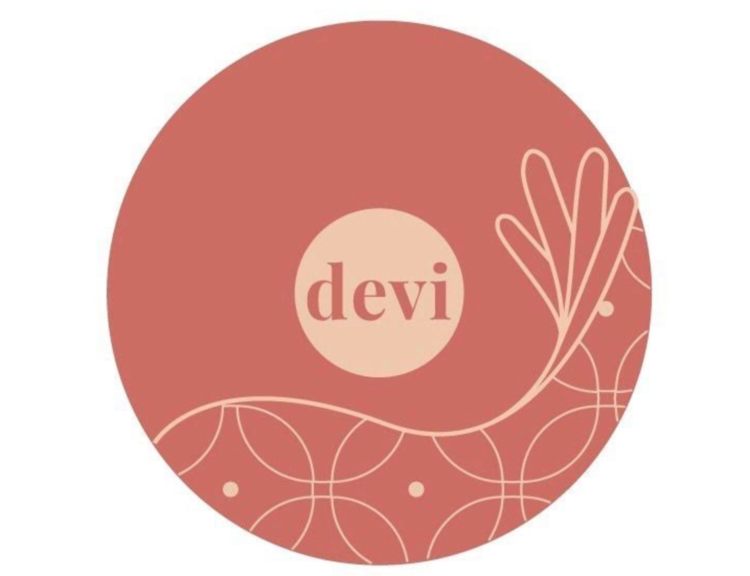
Devi (India)
Theme: Green City Development
Team Members: Malavika Nair, Karun Gopinath
Devi, led by a University of Oxford graduate and a Graduate Institute, Geneva student, will seek to address the critical menstrual health and hygiene challenges the women of the Indian society face today along with the ill effects on the environment. This intervention will specifically address the access barrier through a comprehensive design and delivery mechanism.
Devi will leverage its reach and network to identify, produce and distribute the most financially viable and environmentally sustainable pad to girls and women of marginalised communities in Karnataka, India. Devi will focus on the production of a disposable pad made out of sugarcane fibre. This fibre can be extensively used as the raw material for sanitary pads, dislodging plastic from menstrual care. As we are employing a cluster-based model, with easy access to the government schools in the vicinity, distribution or logistics costs will be heavily mitigated. With this three-fold program design, it will drive employment within the women of the community, increase access to cost-friendly pads and reduce the burden on the environment by redirecting agro-waste and reducing the disposal of non-biodegradable sanitary waste.
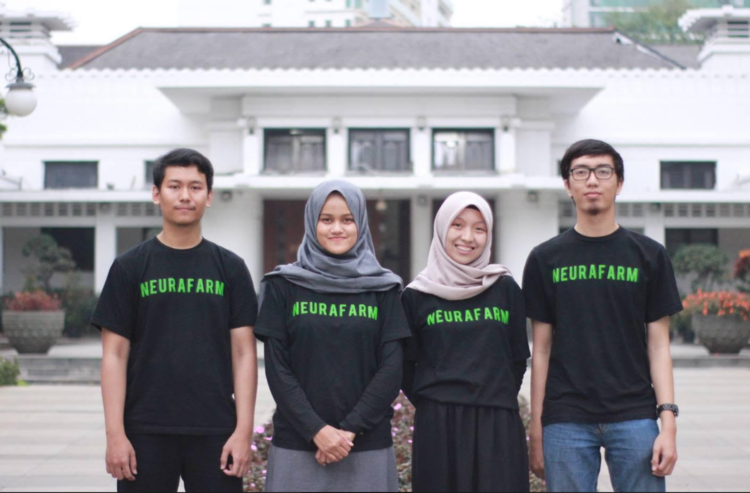
NeuraFarm (Indonesia)
Theme: Sustainable Lanscapes
Team Members: Febi Agil Ifdillah, Lintang Kusuma Pratiwi, Pebriani Artha
Neurafarm is a smart farming company based in Indonesia with a singular mission: to improve productivity and resource use efficiency in the agriculture industry through. We want to end world hunger, increase farmer welfare, and make the world a better place. With the increasing number of global population (expected to be 2 billion more people by 2050 by the FAO), demand for food is growing more than ever before. It means that we have to increase our food production. We believe that we can do that through smart/precision farming. We also believe that precision farming is something that all farmers can do, and we want to enable that.
As the first step, we build a crop management & protection apps, which is powered by Artificial Intelligence to help farmers identify disease from mere images, get comprehensive diagnosis, and treatment recommendation. Farmers can also connect with experts and learn from our catalog of knowledge which consists of thousands disease management best practices in 150 commodities.
Contact us: hi@neurafarm.com
Website: www.neurafarm.com
Download our apps: bit.ly/DownloadTania

